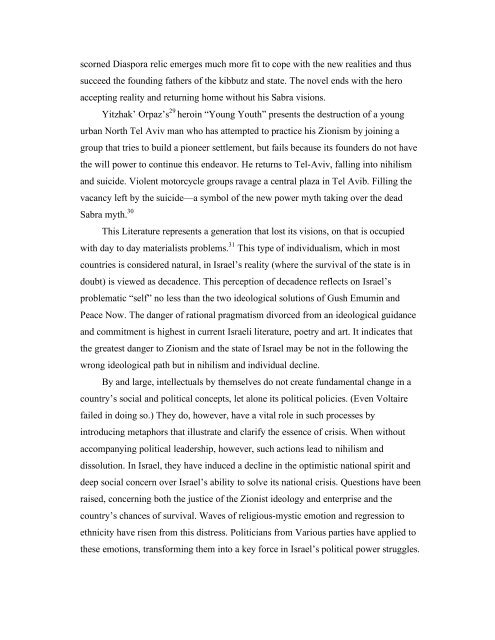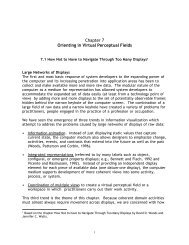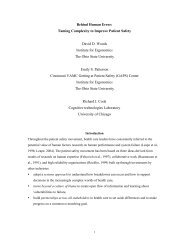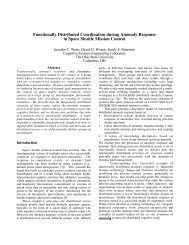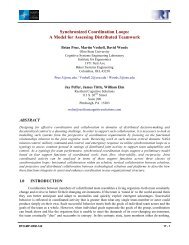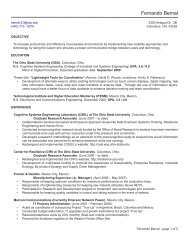Fundamental Surprises Zvi Lanir Decision Research 1201 Oak ...
Fundamental Surprises Zvi Lanir Decision Research 1201 Oak ...
Fundamental Surprises Zvi Lanir Decision Research 1201 Oak ...
- No tags were found...
Create successful ePaper yourself
Turn your PDF publications into a flip-book with our unique Google optimized e-Paper software.
scorned Diaspora relic emerges much more fit to cope with the new realities and thus<br />
succeed the founding fathers of the kibbutz and state. The novel ends with the hero<br />
accepting reality and returning home without his Sabra visions.<br />
Yitzhak’ Orpaz’s 29 heroin “Young Youth” presents the destruction of a young<br />
urban North Tel Aviv man who has attempted to practice his Zionism by joining a<br />
group that tries to build a pioneer settlement, but fails because its founders do not have<br />
the will power to continue this endeavor. He returns to Tel-Aviv, falling into nihilism<br />
and suicide. Violent motorcycle groups ravage a central plaza in Tel Avib. Filling the<br />
vacancy left by the suicide—a symbol of the new power myth taking over the dead<br />
Sabra myth. 30<br />
This Literature represents a generation that lost its visions, on that is occupied<br />
with day to day materialists problems. 31 This type of individualism, which in most<br />
countries is considered natural, in Israel’s reality (where the survival of the state is in<br />
doubt) is viewed as decadence. This perception of decadence reflects on Israel’s<br />
problematic “self” no less than the two ideological solutions of Gush Emumin and<br />
Peace Now. The danger of rational pragmatism divorced from an ideological guidance<br />
and commitment is highest in current Israeli literature, poetry and art. It indicates that<br />
the greatest danger to Zionism and the state of Israel may be not in the following the<br />
wrong ideological path but in nihilism and individual decline.<br />
By and large, intellectuals by themselves do not create fundamental change in a<br />
country’s social and political concepts, let alone its political policies. (Even Voltaire<br />
failed in doing so.) They do, however, have a vital role in such processes by<br />
introducing metaphors that illustrate and clarify the essence of crisis. When without<br />
accompanying political leadership, however, such actions lead to nihilism and<br />
dissolution. In Israel, they have induced a decline in the optimistic national spirit and<br />
deep social concern over Israel’s ability to solve its national crisis. Questions have been<br />
raised, concerning both the justice of the Zionist ideology and enterprise and the<br />
country’s chances of survival. Waves of religious-mystic emotion and regression to<br />
ethnicity have risen from this distress. Politicians from Various parties have applied to<br />
these emotions, transforming them into a key force in Israel’s political power struggles.


